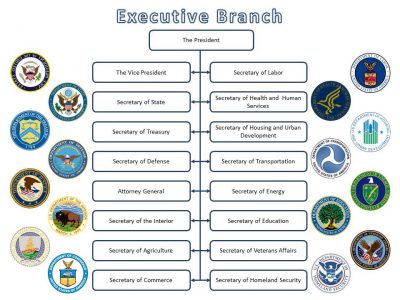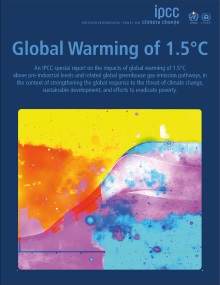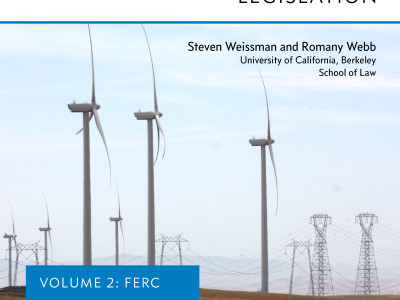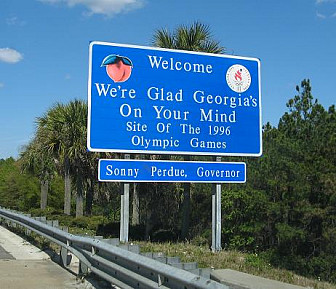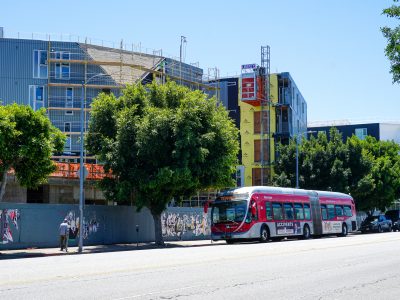New Fellows Join the UCLA Emmett Institute
Adrien Abecassis and Beth Kent bring expertise in international diplomacy and environmental justice to UCLA’s environmental law programs.
Belated introductions are due for two new fellows who joined the UCLA Emmett Institute this summer, Adrien Abecassis and Beth Kent. Abecassis and Kent join four other Emmett Institute fellows, Charles Corbett, Benjamin Harris, Jesse Reynolds, and Siyi Shen, in limited-term faculty appointments at UCLA Law, conducting research, teaching classes, and supporting our public service. Adrien Abecassis joins us as an Emmett Climate Engineering Fellow in Environmental Law an...
CONTINUE READING“Whole of Government” Climate Policy
We need the help of far-flung parts of the federal government to deal with climate.
President Biden will have to rely on administrative action to do much or all of the heavy lifting in climate policy. It’s clear that EPA has a central role to play in climate policy, but EPA does not stand alone. Other agencies also have important roles to play. Fortunately, the Biden transition team seems to have come to this realization. A multi-agency approach is especially important because bold actions by EPA will face a skeptical audience in the 6-3 Supreme Co...
CONTINUE READINGTrump’s Biggest Anti-Environmental Fail
He did his best to destroy EPA completely. But his devastating budget proposals got nowhere.
Trump was awful for the environment. But he wanted to be even worse. If Trump had had his way, only shreds of key environmental agencies would now be left. Although Trump has certainly succeeded in weakening them, the cores of the agencies remain intact. Without them, Biden's task would be much harder. Trump's budgets unvaryingly called for eviscerating or even zeroing-out environment-related agencies. In 2017, with his first budget proposal, everyone panicked at th...
CONTINUE READINGThe IPCC Misses the Mark on Solar Geoengineering
The Intergovernmental Panel Climate Change poorly portrays the "institutional and social constraints to deployment related to governance"
Not long ago, I re-read the top-level messages from the Intergovernmental Panel Climate Change (IPCC) on solar geoengineering's governance issues. The Summary for Policymakers of most recent broad report, Global Warming of 1.5°C (SR1.5), says, in full: Solar radiation modification (SRM) [i.e. solar geoengineering] measures are not included in any of the available assessed pathways. Although some SRM measures may be theoretically effective in reducing an oversho...
CONTINUE READINGThree key environmental priorities for the Biden administration
Spoiler alert: the most important first steps are not directly environmental
Like many others, I breathed an enormous sigh of relief when the presidential race was called for Joe Biden. Like many others, I will not entirely relax until Biden is actually sworn in. The failure of our current norm-breaking President (and his enablers) to accept the election results is both frustrating and frightening. It also helps explain why the most important early steps the Biden administration can take to protect the environment and restore environmental law ar...
CONTINUE READINGSome of the Things Federal Agencies Can Do to Address Climate Change
Current federal law provides many ways to reduce greenhouse gas emissions, even without a friendly senate
As the likelihood grows that the United States will have a new president who will preside over a divided government, and various policy think tanks line up to offer suggestions for effective action on various important issues, it seems like the right time to shine a light once again on a series of reports issued by Berkeley Law’s Center for Law, Energy and the Environment (CLEE) in 2014. The three-volume series is entitled “Addressing Climate Change Without Legisl...
CONTINUE READINGPresident Biden & Climate Change: What’s Achievable?
Divided federal government might still allow possibility for meaningful action
With a victory in the presidential election, Joe Biden now faces a U.S. Senate that still hangs in the balance. But even with a Democratic runoff sweep in Georgia next month, it will be very divided. So what will be possible for a President Biden and his administration to achieve on climate change? Agency action, foreign policy changes, and spending can all make a difference on emissions, with any COVID stimulus and budget deals with Congress, if feasible, providing p...
CONTINUE READINGThe Georgia Runoffs and the Environment
Control of the Senate is at stake. So is Joe Biden's legislative agenda.
Georgia has two Senate contests due to a fluke of timing — one a regular election, the other a special election. Both elections have gone into runoffs. The outcomes will have major implications for the environment because control of the Senate is at stake. The regular election pits David Perdue (R) against Jonathan Ossoff (D). The special election pits Kelley Loeffler (R) against Rev. Raphael Warnock, the African-American pastor of the historic Ebenezer Baptist ...
CONTINUE READINGThe Changing Landscape of Climate Policy
Even under Trump, the U.S. was slowly lurching in the right direction. Biden needs to give the process a good strong push.
Barring a Democratic sweep in the Georgia runoffs, Biden will be facing a Republican Senate. But he also has a big advantage: The world has changed in some important ways that favor climate action. The importance of these positive changes may have been obscured by some negative developments. Since Barack Obama left office, climate change has become even more urgent, and Trump’s presidency has proved a disaster for environmental policy. His Supreme Court appointm...
CONTINUE READINGClimate Candidates Notch Victories in Major City Council Races Across Western U.S.
Voters choose new candidates with strong climate platforms in Los Angeles, Phoenix, San Diego, and other large cities across the West
While ballot counting continues across the country, city council races are now being called, with new climate champions set to take office in large Western U.S. cities that held elections this week. Many of the victors are taking on their first elected positions. Candidates with inspiring and ambitious climate platforms notched victories in six large Western U.S. cities: Los Angeles, Phoenix, San Diego, San Jose, San Francisco, and Portland. Other large cities by popu...
CONTINUE READING



